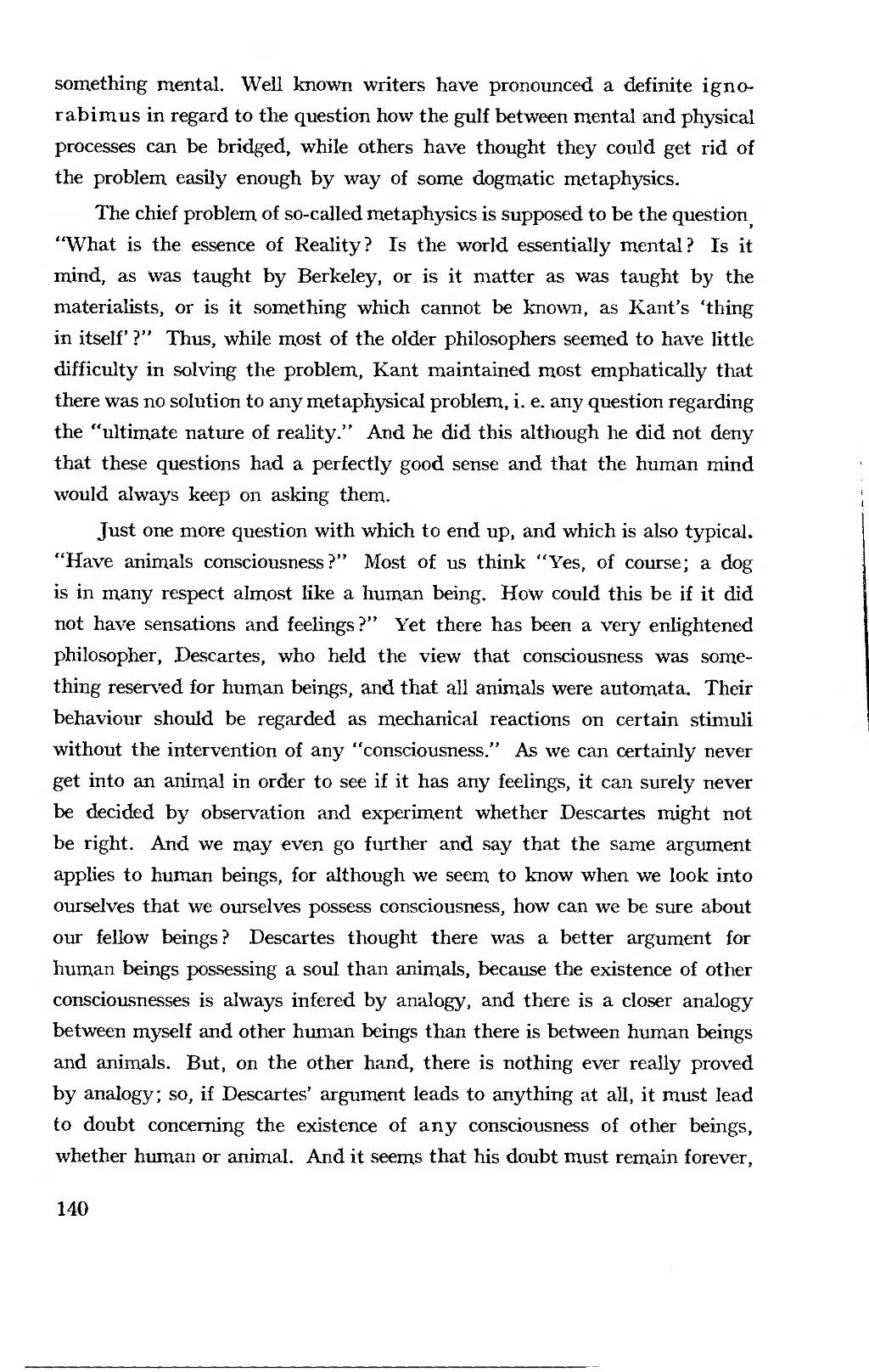something mental. Well known writers have pronounced a definite ignorabimus in regard to the question how the gulf between mental and physical processes can be bridged, while others have thought they could get rid of the problem easily enough by way of some dogmatic metaphysics.
The chief problem of so-called metaphysics is supposed to be the question “What is the essence of Reality? Is the world essentially mental? Is it mind, as was taught by Berkeley, or is it matter as was taught by the materialists, or is it something which cannot be known, as Kant's ‘thing in itself’?” Thus, while most of the older philosophers seemed to have little difficulty in solving the problem, Kant maintained most emphatically that there was no solution to any metaphysical problem, i. e. any question regarding the “ultimate nature of reality.” And he did this although he did not deny that these questions had a perfectly good sense and that the human mind would always keep on asking them.
Just one more question with which to end up, and which is also typical. “Have animals consciousness?” Most of us think “Yes, of course; a dog is in many respect almost like a human being. How could this be if it did not have sensations and feelings?” Yet there has been a very enlightened philosopher, Descartes, who held the view that consciousness was something reserved for human beings, and that all animals were automata. Their behaviour should be regarded as mechanical reactions on certain stimuli without the intervention of any “consciousness.” As we can certainly never get into an animal in order to see if it has any feelings, it can surely never be decided by observation and experiment whether Descartes might not be right. And we may even go further and say that the same argument applies to human beings, for although we seem to know when we look into ourselves that we ourselves possess consciousness, how can we be sure about our fellow beings? Descartes thought there was a better argument for human beings possessing a soul than animals, because the existence of other consciousnesses is always infered by analogy, and there is a closer analogy between myself and other human beings than there is between human beings and animals. But, on the other hand, there is nothing ever really proved by analogy; so, if Descartes' argument leads to anything at all, it must lead to doubt concerning the existence of any consciousness of other beings, whether human or animal. And it seems that his doubt must remain forever,
